The PNGEITI National Secretariat through its Multi-stakeholders Group (MSG) has already commenced preparation to engage a consultant to scope out the operations of State-Owned Entities (SOEs) including Trustees involved in the extractive sector or those that have an equity share (either on behalf of the Government or provincial governments).
Head of National Secretariat Lucas Alkan announced this week that the execution of the study on SOEs was an important undertaking in not only meeting the requirement of the EITI Standard as recommended in the country’s first validation but also, as part of the Government’s commitment to enhancing transparency in the operations of these entities.
“The scoping study will also include Trustees established by the Government for managing businesses arms established by provincial, local level governments and landowners using revenue flows from extractive activities in the country,” Alkan said.
“The study is intended to understand the relations between all SOEs and trustees and the transactions between extractive SOEs (and their subsidiaries) and to recommend possible policy and legislative reforms to improve transparency and accountability for EITI reporting requirements.
“Most importantly, to enable the Government to have a clear visibility and oversight on the operations of these entities,” Alkan said.
He said though the study will be confined to SOEs involved in the extractive sector only, the work will complement and support the Government’s overall SOE reform policy agenda being progressed.
A Technical Working Group made up of MSG members has been working to engage a consultant to execute the study. An announcement for expressions of interest for a consultant was advertised in the daily newspapers last week and also posted on the PNGEITI website.
The following recommendations were made for the study of SOEs;
- PNG should clearly establish its definition of SOEs to delineate the SOEs within the scope of EITI reporting to ensure that a comprehensive list of state participation in the extractive industries, including terms associated with state equity and any changes in the year under review be publicly accessible.
- PNG must clarify the rules and practices governing financial relations between all SOEs, including their subsidiaries, and the State, including the existence of any loans or guarantees extended by the State, or SOEs, to extractive companies or projects.
- PNG should undertake a comprehensive assessment of transactions between extractives SOEs (and their subsidiaries) and mining, oil and gas companies, as well as between the extractive SOEs (including their subsidiaries) and government in its scoping for future EITI Reports.
- All SOEs collecting material revenues or making material payments to government should be included in future EITI reporting.
- PNG should undertake a comprehensive review of all expenditures undertaken by extractive SOEs (and their subsidiaries) that could be considered quasi-fiscal.
- Furthermore, it was recommended through the validation process that PNG should develop a reporting process with a view to achieving a level of transparency commensurate with other payments and revenue streams, and should include SOE subsidiaries and joint ventures and their financing and equity arrangements in extractive projects.
The study is anticipated to take about 4 to 5 months and will commence in April, 2020. The MSG anticipates to implement the findings from this study in early 2021.
Background information on PNG’s implementation of the EITI Standard
The EITI implementation in PNG was validated against the EITI Standard by an independent validator in early 2018.
Subsequently, the EITI Board granted PNG ‘Meaningful Progress’ overall in implementing the EITI Standard following the conclusion of the first country validation. This means that PNG met some of the key requirements of implementing the EITI Standard. However, there remained a number of critical areas the Government needed to address in order to fully comply with the Standard.
The EITI Board therefore allowed PNG 18 months to undertake these corrective actions before the second validation in 2020.
One of the key recommendations was for PNG to improve transparency in the operations of its extractive SOEs. This is to ensure that a comprehensive list of State participation in the extractive industries, including terms associated with State equity and any changes in the year under review be publicly accessible.
EITI implementing countries are assessed or validated, consistent with the EITI Standard. The first validation commences 3 years after a country signs up to implement the Standard.
PNG Government signed up to implement the Standard in 2013 and has been implementing it for 6 years to date. The validation process is a tool used by EITI International to assess the impact that the EITI process makes at country level, particularly the policy and legislative reforms to strengthen the systems of government for better management of its extractive wealth.
Through this validation process, there are 5 categories that countries can be ranked based on their progress ranging from; No Progress, Inadequate Progress, Meaningful Progress, Satisfactory Progress and Progress Beyond the EITI requirements.
PNG having attained ‘Meaningful Progress’ in the first validation is actually a good outcome in its efforts to improve transparency and governance of the sector. This outcome is only one step short of becoming a fully compliant EITI country.





